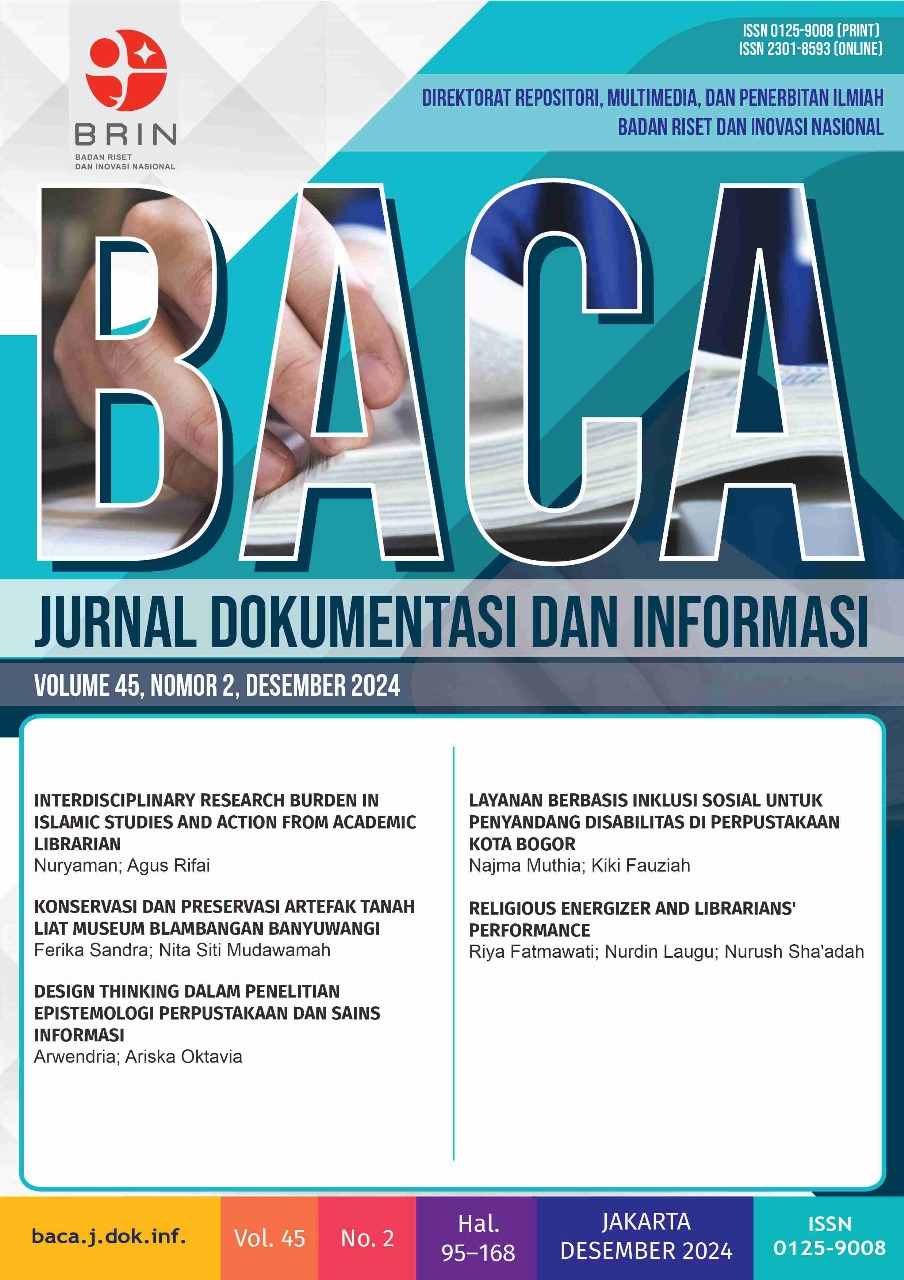Interdisciplinary Research Burden in Islamic Studies and Action from Academic Librarian
Main Article Content
Abstract
Interdisciplinary research is increasingly recognized as a crucial approach to addressing the complexity of religious and social issues in regional and global contexts. However, the implementation of such research often encounters significant challenges, particularly in fields like Islamic Studies. Despite its potential, integrating diverse disciplines into Islamic Studies research is not always successful due to various obstacles. With their unique expertise and role as "connectors," academic librarians are well-positioned to facilitate this interdisciplinary growth. This paper examines the challenges faced in interdisciplinary research within Islamic Studies and explores the potential involvement that academic librarians can use to overcome these barriers. Researchers employ a literature-based method involving stages of designing, collecting, analyzing, and presenting research to examine the challenges in interdisciplinary studies. The results reveal two primary types of burdens: scientific and practical. Scientific burdens include limitations in researchers' knowledge, difficulties in integrating disciplines, and an overemphasis on the original discipline. Practical burdens include implementing interdisciplinary curricula, navigating bureaucratic procedures, accessing research facilities, finding relevant information sources, and preparing research proposals. Academic librarians play a crucial role in addressing these practical burdens by optimizing policies, providing relevant collections and access, and developing advanced facilities and services. The study concludes that for effective interdisciplinary research, it is essential to recognize and address these burdens, leveraging the support and resources provided by academic librarians to enhance the research process.
Downloads
Article Details

This work is licensed under a Creative Commons Attribution-ShareAlike 4.0 International License.


